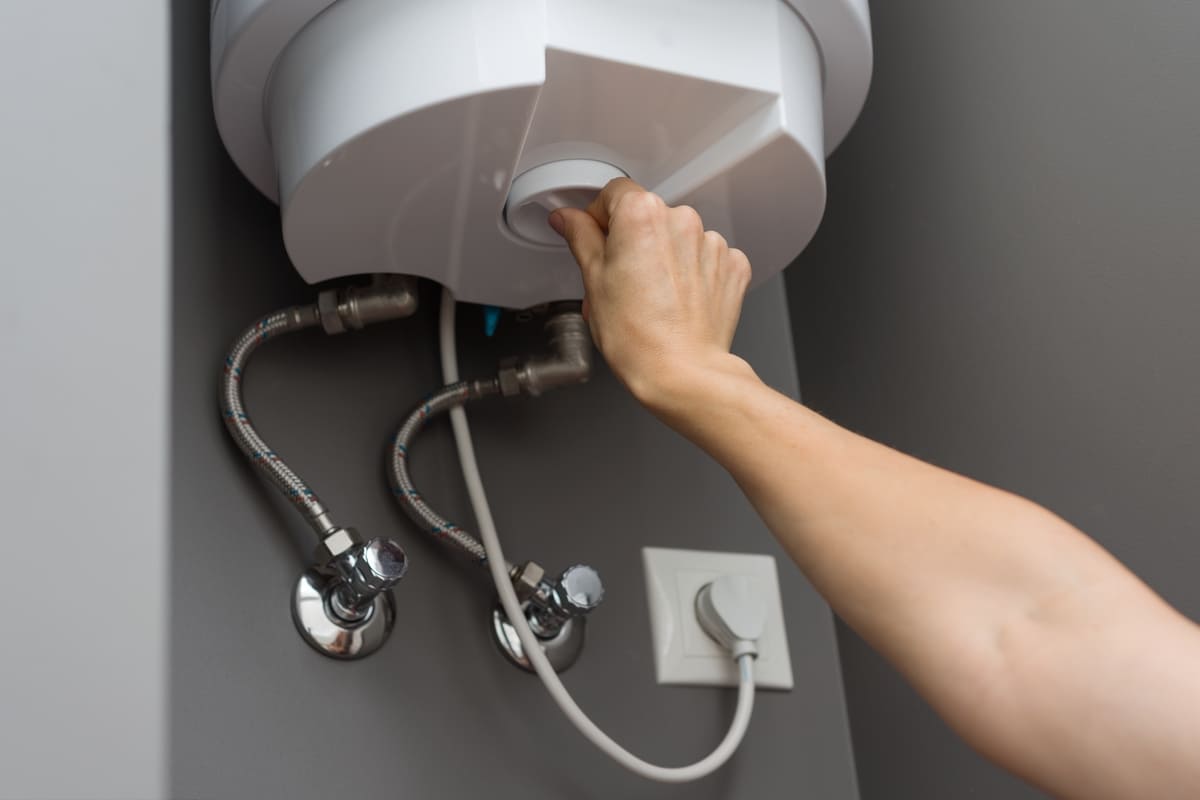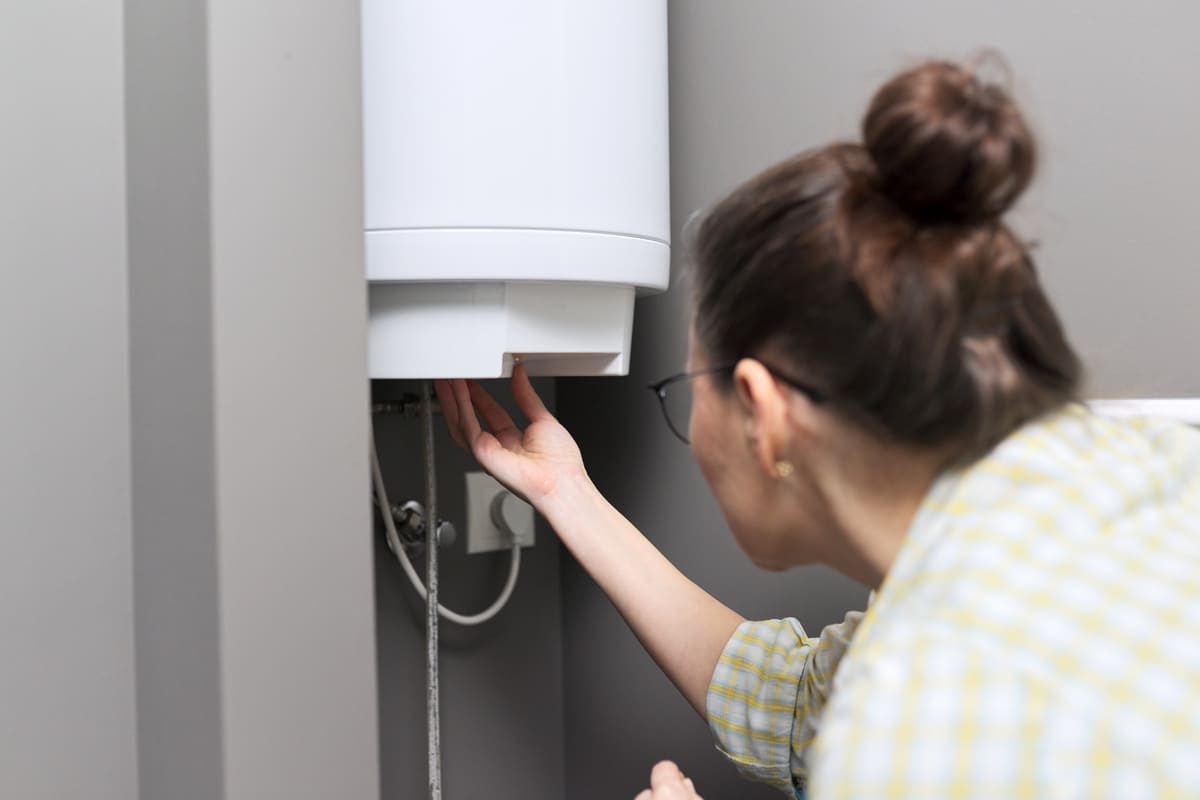In our daily lives, we often take our household appliances for granted, not stopping to consider the science and technology behind them. One such appliance is the geyser, a critical tool for heating water. But have you ever wondered how long it actually takes for a geyser to heat water? What are the factors that influence this time? In this article, we will determine how quickly your geyser can heat water. By understanding the details, you can confidently choose the most suitable geyser to meet your hot water needs.
What Are Water Heaters?
Water heaters, or geysers, are essential home appliances that supply hot water to showers, sinks, and other fixtures. There are mainly two types of water heaters: tank-type heaters and tankless heaters. Tank-type heaters store and heat a large amount of water in their tanks, while tankless heaters heat water on demand as it flows through the unit.
How long does it take to heat the water in a geyser?
In general, a standard geyser takes around 30 to 40 minutes to heat the water in its tank to the desired temperature. However, certain models can require up to an hour to an hour and 20 minutes. The duration largely depends on the specifications and efficiency of the particular geyser.
The amount of time it takes to heat water in a geyser can also be affected by the size and type of the geyser, the incoming water temperature (which may vary based on season), and how much hot water is being drawn from it. For example, if you are drawing a lot of hot water quickly, it will take longer for the geyser to replenish itself and heat the additional water.
Different Types of Water Heaters And Their Heating Time!
Different types of water heaters have different heating times, and their efficiency can also vary. Here are some common types:
Gas Heaters
Gas heaters provide hot water efficiently, with heating times ranging between 30 to 40 minutes for tank-type heaters. These heaters utilize natural gas or propane as fuel, making them a relatively cost-effective option.
Electric Heaters
On the other hand, electric heaters require more time to heat up the water in their tank, usually taking between 60 to 80 minutes. They rely on electrical power to heat water, making them comparably slower than their gas counterparts.
Tankless Water Heaters
Tankless water heaters, whether gas or electric, offer a significant advantage in heating time. Thanks to their heat exchanger and pipework, gas tankless heaters can heat the water in as little as 8-12 seconds. Electric tankless water heaters deliver hot water almost instantaneously, often taking less than 20 seconds.
Solar Water Heater
These use solar panels to capture heat from the sun and transfer it to the water. The heating time varies greatly depending on the amount of sunlight available, the size of the solar collector, and the volume of water. It would take between 2-4 hours to heat a large tank of water.

Factors That Affect the Heating Time
Several factors can influence the heating time of your geyser. These include:
- Negligence: Water heaters require regular maintenance for optimal performance. Neglect can lead to issues such as sediment buildup and internal rust, affecting the heating time.
- Sediment Buildup: Over time, minerals in the water can accumulate at the bottom of the heater, creating a barrier between the burner and the water, thus increasing the heating time.
- Internal Rust: Rust inside the water heater can reduce efficiency and increase the time it takes to heat water.
- High Water Usage: The more hot water you use, the harder your geyser has to work to maintain a hot water supply, increasing heating time.
- Type and Condition of Geyser: Different types of geysers have different heating times. Additionally, older or poorly maintained geysers may take longer to heat water.
- Heat Flux, Flow Rate, and System Pressure: These physical properties can significantly impact the geyser’s operation. Changes in these factors can alter the heating time.
- Environmental Factors: Geysers are also affected by external factors such as solar heating and changes in water recharge rates, which can influence their heating time
Why Do Electric Heaters Take More Time?
Electric heaters often take more time to heat up due to several factors:
- Heating Element: Electric heaters use resistive elements to generate heat. The heating element needs to reach a certain temperature before it can start effectively heating the surrounding air or water, which takes time.
- Efficiency: Electric heaters are generally less efficient than gas heaters. This is because electricity generation and transmission typically involve more energy loss than direct combustion of natural gas.
- Power Supply: Electric heaters are limited by the power supply they are connected to. If the electrical supply is not sufficient, the heater will not be able to generate heat quickly.
- Size and Capacity: Larger electric heaters or those with higher capacities can take longer to heat up. This is because there is more water or air to heat, which increases the amount of time required.
- Insulation: Poor insulation can result in heat loss, causing the heater to take longer to reach the desired temperature.
- Thermostat Settings: If the thermostat is set to a very high temperature, it may take longer for the electric heater to reach that temperature.
- Maintenance: Lack of regular maintenance can lead to inefficiencies in the system, resulting in longer heating times. For instance, sediment build-up in water heaters can insulate the water from the heating element, slowing down the heating process.
Conclusion
Understanding the differences in heating times among various types of water heaters will help you decide when selecting a geyser for your home. Gas heaters are typically faster than electric heaters in hot water, whereas tankless water heaters, particularly electric ones, can supply hot water almost instantaneously. Considering factors such as the time it takes to heat water and the heater’s overall efficiency, you can ensure that the geyser you choose will effectively meet your hot water needs.










![Home Renovation Guide [2025]](/app/uploads/2021/04/design-hacks-1-378x300.jpg)
